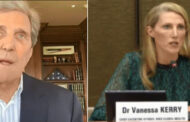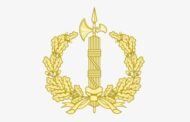NOTE: THIS PAGE IS A WORK IN PROGRESS BECAUSE I DIDN’T WANT TO HOLD UP PUBLICATION OF THE MAIN STORY
In 1648, after 30 years of war between Protestants and Catholics, European monarchs signed the Peace Treaty of Westphalia to end it. That treaty was roughly the beginning of the system of international law and the nation-state system. The nation-state system is mutual recognition of geographic boundaries within which the ruling governments are sovereign. Violation of the boundaries of the nation-state by outside marauders is a violation of law and justification for war. This Treaty would seem to be the cause of the Age of Discovery during which all of the European nations sought to discover new lands upon which to plant their flags.
In 1706, England and Scotland signed Treaty of Union creating a new nation-state called the United Kingdom (UK) of Great Britain. The Treaty with England, the relaxation of religious rule following the hanging of a young man for blasphemy, and the relatively high level of literacy among the Scots were the precursors towards a kick off of an intellectual revolution which came to be known as the Scottish Enlightenment.
At roughly the same time, the industrial revolution was beginning in England. It was the beginning of designing and building machines to replace hand labor.
The most important of the changes that brought about the Industrial Revolution were (1) the invention of machines to do the work of hand tools; (2) the use of steam, and later of other kinds of power, in place of the muscles of human beings and of animals; and (3) the adoption of the factory system.
The Industrial Revolution came gradually. It happened in a short span of time, however, when measured against the centuries people had worked entirely by hand. Until John Kay invented the flying shuttle in 1733 and James Hargreaves the spinning jenny 31 years later, the making of yarn and the weaving of cloth had been much the same for thousands of years. By 1800 a host of new and faster processes were in use in both manufacture and transportation.
Richard Cobden (1804-1865) being a product of his times spawned the Free Trade Movement in Europe – Peace Through Trade combining the elements of the Scottish Peace Movement and the requirements necessary for the industrial revolution to flourish. Cobden was also a member of the British Parliament so while the credit for the idea of World’s Fair for businessmen of the early industrial revolution is credited to Prince Albert, it is highly likely that it originated with Cobden’s thinking.
The Peace Movement and formal system of international law was spawned from this era in UK history.






One Comment
Kristin
Doesn’t matter Vicky. Had Cobden not cooked up the idea someone else would have. This I do believe and I also hold to the idea that we “should not enter into compacts with heathen nations” as they do not subscribe to Western credo the “golden Rule”, nor do states like Communist China have our same values regarding work ethics, stigma associated with imitation poor quality products and so on. 25 % of all food imports are embargoed, most are from China and disallowed entry by USDA because of contamination, undeclared or illegal ingredients and so on. Almost all of the knockoffs (also illegal) are from China, if not all. But we have an “agreement”! gosh, too bad we NEVER break any agreements, right?